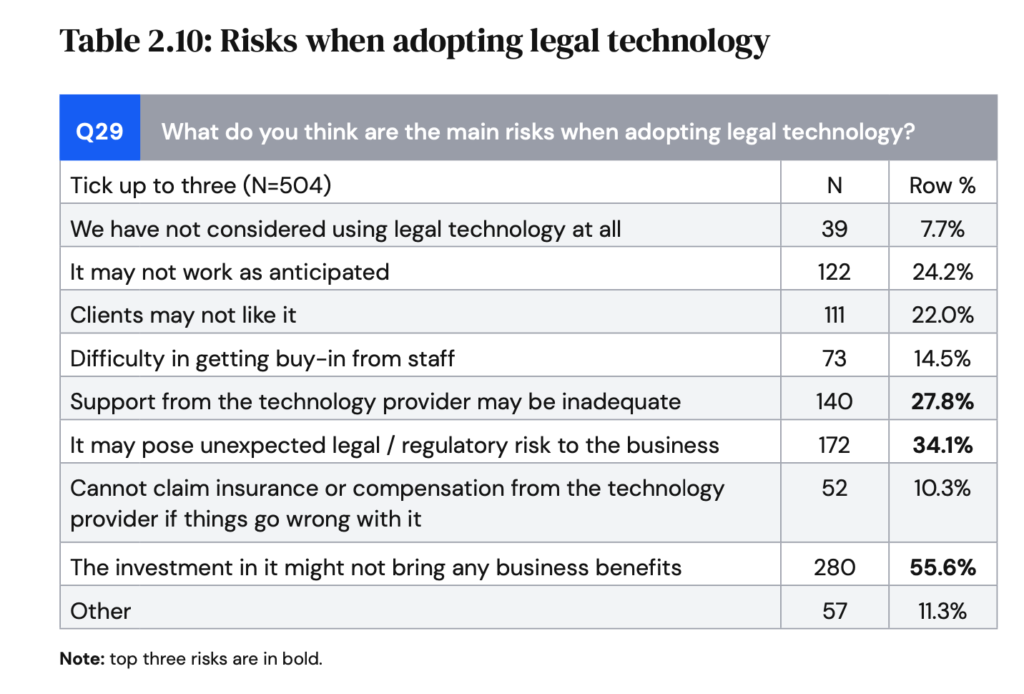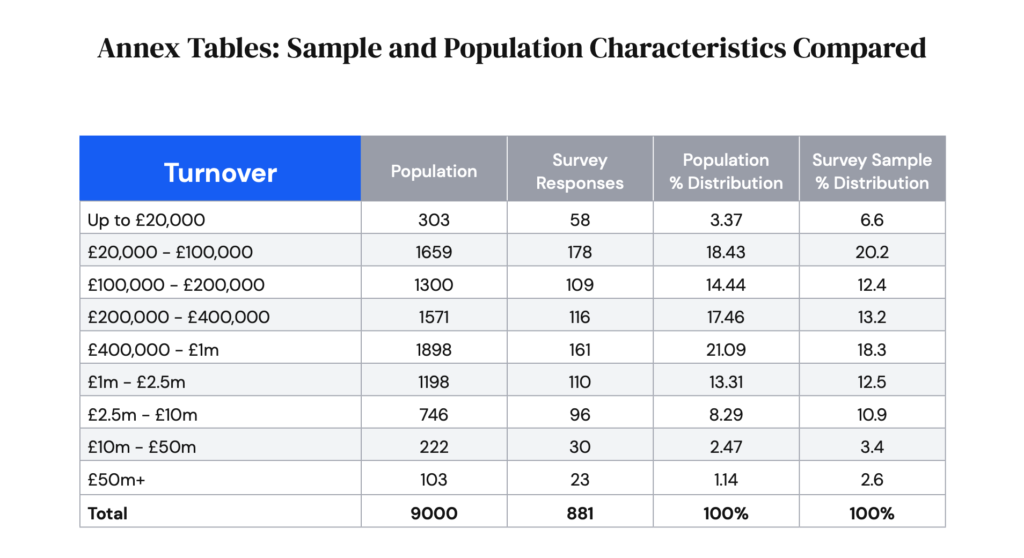
A new study by Oxford University using data from the Solicitors Regulation Authority has found that when it comes to the world of ‘Small Law’, or ‘People Law’, there are some significant barriers to tech adoption.
The survey of 881 respondents, of which 94% were at UK firms with revenues below £10m ($14m), found that the number one ‘risk when adopting legal tech’ is that ‘it might not bring any business benefits‘ – see table below. Over 55% of respondents listed this as their main worry.
The next most notable worries were the potential to create regulatory risks, and that the legal tech vendor would not really help them enough to use the technology they had bought.

That law firms – whether the small ones here that make up the vast majority of the sample – or large ones, cannot see the value in legal tech is a worry.
This suggests two things. First, that legal tech companies they’ve encountered have not been able to articulate clear value. After all, one can bet the very same people surveyed would extol the benefits of having, for example, a mobile phone. If they cannot see the business benefit of the tech then they cannot be expected to invest in it.
Secondly, that it’s possible the potential buyers are thinking in terms of buying legal tech ‘because they ought to’ as it’s ‘cool’ and ‘everyone is doing it now’, rather than seeing a clear business case. I.e. there’s almost a feeling that they’re obliged to ‘buy some legal tech’, rather than thinking in terms of how they want to improve their business and then reaching for a legal tech solution to help meet that need. And of course, tech may not be the answer to their business need.
In the UK there has been a lot of promotion of the value of legal tech, for example the Law Society has made a major effort here. However, it’s possible that the message is getting mixed up. I.e. it’s not that small law firms need legal tech tools, it’s that they need to be more efficient – and would financially benefit from being so – and that tech is a major support for that goal.
Also, the fact that ‘People Law’ firms are worried that tech can cause regulatory issues is another challenge. In 99.9999% of cases legal tech tools raise no regulatory issues, other than basic things such as data security.
A law firm using a practice management system, or other mundane piece of tech, is not at regulatory risk. So, it’s also a concern that they are stressed about this, as it’s really just holding back adoption of tech that could help them.
The third point about tech companies not helping is also a thorny one. Very small firms have little to no capacity for managing tech needs. They need to just ‘fire and forget’ when it comes to tech tools. Perhaps past experience with vendors also makes them feel unsure they will get support?
The challenge here is that when tech companies sell to the wider market they tend to avoid offering a lot of tech support, as lower prices for that market cannot pay for expert technical help by the vendor.
So, overall, People Law, or Small Law, faces some hurdles, both systemic and also perhaps from the way legal tech is being pitched to them.
Note: the report is quite extensive, but a lot of it is hard to use as the results have not been segmented by law firm size. E.g. the views, tech use, and needs of a Top 50 UK law firm will have a very different profile to a firm with £1m in revenues that deals mostly with wills and probate. Also, perhaps surprisingly, over 26% of the survey sample included firms with revenues below £100,000 ($140,000). It just shows that when most of us are so focused on Big Law we can forget how much of the legal market really doesn’t have the resources to engage with legal tech that deeply.
The full report can be found here.
—
Technology and Innovation in Legal Services Report – Demographics:
